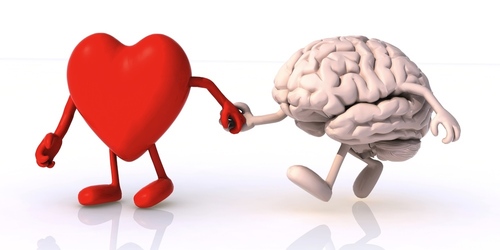

These nerves connect the brain with some of our internal organs, including the heart. They allow the brain to receive information about how hard the heart is working and send commands to control how quickly it beats.
Did you know that messages between your heart and brain determine how much you can exercise? Jenny Mitchell explains, and finds out how BHF research could help people with heart failure.
Imagine that you’ve gone to your local park for a run. You’re feeling the urge to pick up your pace, so your brain sends messages along the nerves in your leg muscles telling them to move faster, and suddenly you’re sprinting. But if you want to keep running at this pace, your muscles will need to be supplied with more oxygen and glucose to keep them going.
This means that your heart will need to beat faster and with more force, in order to pump more oxygen-rich blood to your muscles.
We can’t consciously increase the speed or strength of our heartbeat, so this is where the subconscious part of our nervous system – known as the autonomic nervous system – is in control. It’s this process, and how it can go wrong, that Professor Alexander Gourine and his team at University College London are researching, with colleagues at Queen Mary University of London.
This process might hold part of the secret to athletic success: the fitter we are, the more effective the connections are between our brain and our heart. But more importantly, this research could help people with heart failure, and other heart and circulatory diseases that make it much harder to exercise.
Exercise and heart disease
The autonomic nervous system controls many of the body’s functions – pretty much anything that our body does without us having to think about it, such as sweating, digestion, or the blood pressure in our arteries. One part of the autonomic nervous system is a pair of nerves called the vagus nerves, which run up either side of the neck. These nerves connect the brain with some of our internal organs, including the heart. They allow the brain to receive information about how hard the heart is working and send commands to control how quickly it beats.
It seems that if we exercise regularly, our autonomic nervous system adapts to control the heart more efficiently. When people develop heart disease, the opposite happens: the autonomic nervous system becomes less active and doesn’t talk to the heart as much. This means that the heart finds it harder to quickly and fully respond to our physical demands, leaving many people with heart disease unable to exercise.
Healthy Heart and Brain
